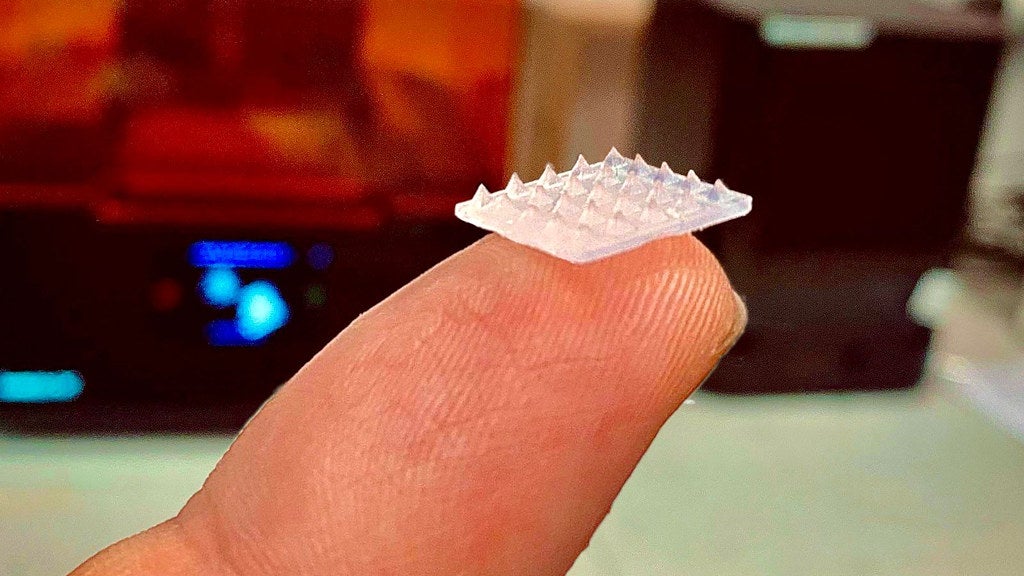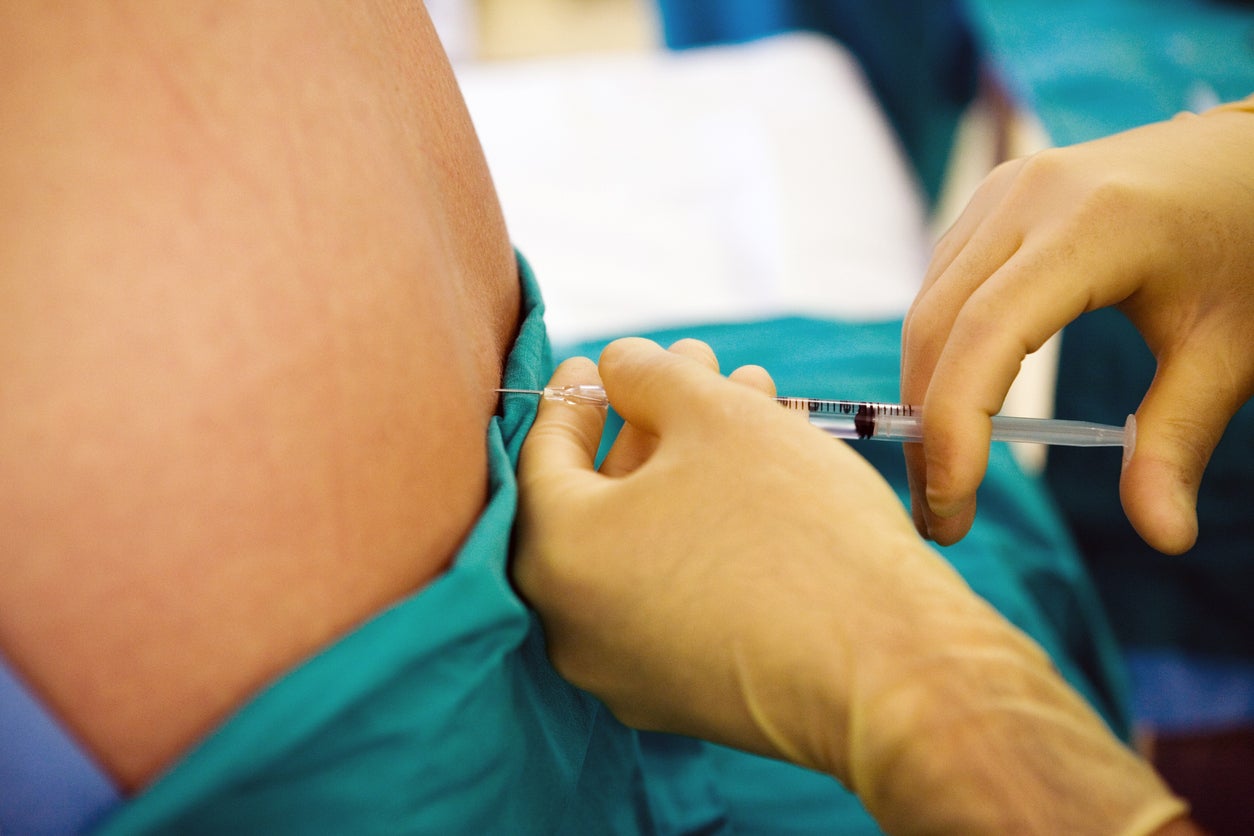‘Painless’ skin patch could bring an end to medical needles and jabs
Reseachers hope ‘microneedles’ will be available in the next five to 10 years

Your support helps us to tell the story
From reproductive rights to climate change to Big Tech, The Independent is on the ground when the story is developing. Whether it's investigating the financials of Elon Musk's pro-Trump PAC or producing our latest documentary, 'The A Word', which shines a light on the American women fighting for reproductive rights, we know how important it is to parse out the facts from the messaging.
At such a critical moment in US history, we need reporters on the ground. Your donation allows us to keep sending journalists to speak to both sides of the story.
The Independent is trusted by Americans across the entire political spectrum. And unlike many other quality news outlets, we choose not to lock Americans out of our reporting and analysis with paywalls. We believe quality journalism should be available to everyone, paid for by those who can afford it.
Your support makes all the difference.An innovative new skin patch that painlessly delivers drugs to the body could see the end of medical needles and jabs.
The ‘microneedle’ patch developed by scientists at the University of Bath delivers a controlled dosage of medicine directly into the body, eliminating the need for injections or oral medication.
It is hoped that the patches, which are described in the journal Biomaterials Advances, will be ready for public use within the next five to 10 years.
Funded by EPSRC and Abbott Diabetes Care, the new patches are made from a new substance ‘hydrogel’ - a gel-like substance in which water forms the liquid component.
They can also be 3D printed, making them more affordable than existing commercially available microneedle patches.
A photo of the patch shows how it is smaller than a pound coin, featuring visible microneedles that painlessly pierce the first few layers of skin when applied.
Contact with fluid beneath the skin barrier causes the ‘hydrophilic’ needles to swell, allowing a specific dosage of the chosen drug to enter a patient’s body.
Bath University-based chemical engineer Dr Hannah Leese developed the patches alongside fellow engineers PhD student Joseph Turner, Professor Pedro Estrela and biologist Dr Maisem Laabei.
She says that she can imagine one day every day Brits wearing patches under their smartwatches, monitoring stress hormone changes and other data.
She said: “Injections are invasive and expensive, and they don’t suit everyone. A lot of people are needle-phobic and are understandably reluctant to receive medicine by injection even when treatment is really needed.
"Others are ill-suited to injections – for instance, elderly patients with thin skin.
“Also, sometimes the use of needles can introduce pathogens, such as bacteria, that may cause infections, especially in people with low immunity."

While people are typically happier to take drugs orally, Dr Leese says that there can be negative side effects to pills or delays that the new patches could speed up.
She said: “You can experience gastrointestinal side effects; there is a delay between taking the medication and the drug getting to where it’s needed in the body.
“Doses need to be higher because a lot of the formulation is broken down in the gut, and if the patient is taking antibiotics, this can also contribute to antimicrobial drug resistance.
“Our next step is to continue to refine the microneedle platform and run animal studies before moving to human clinical trials.
“I’m hopeful these patches will be ready for patient use within the next five to 10 years."
Dr Leese anticipates that the patches will be able to deliver both drugs that circulate the entire body and drugs that need to remain more localised.
For example; the patches could be used to treat infected areas of the body. There is also scope for the patches to deliver vaccines and to monitor hormone levels.
Dr Leese added: “We can also see there being a role for these patches in the health and wellness fields.
"I can picture the day people have microneedles under their smartwatches to detect fluctuations in the stress hormone, cortisol.”
Subscribe to Independent Premium to bookmark this article
Want to bookmark your favourite articles and stories to read or reference later? Start your Independent Premium subscription today.



Join our commenting forum
Join thought-provoking conversations, follow other Independent readers and see their replies
Comments